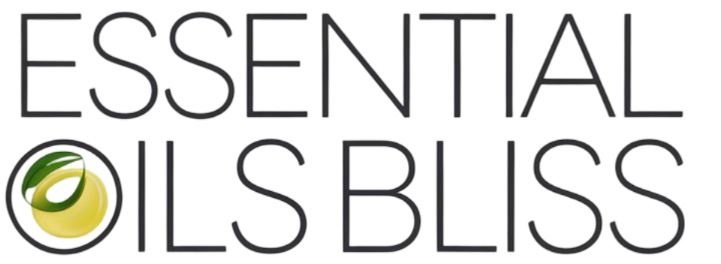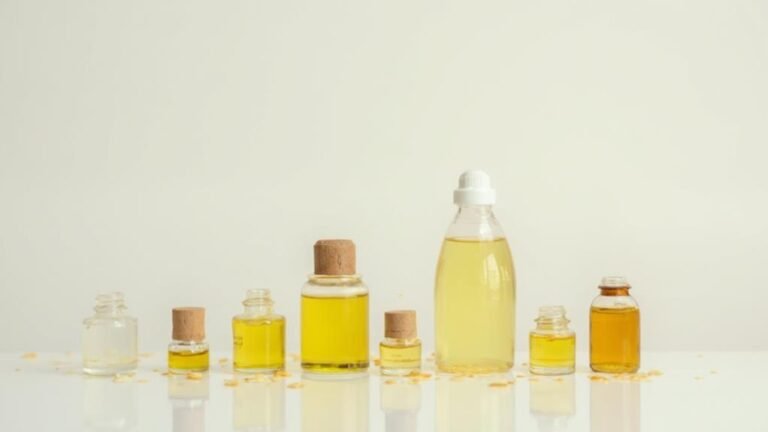Do Essential Oils Break a Fast?
Generally, essential oils do not break a fast when used topically (on the skin) or aromatically (inhaled).
This is because they don’t contain significant calories or macronutrients that would trigger a metabolic response and disrupt the goals of fasting.
However, ingesting essential oils can potentially break a fast, as they may stimulate digestion and interfere with the metabolic processes associated with fasting.
Understanding Fasting and Its Goals

Fasting involves abstaining from caloric intake for a specific period, allowing your body to shift from using glucose for energy to utilizing stored fat reserves.
This metabolic switch enables your body to focus on autophagy, a cellular cleaning and renewal process.
Key physiological changes during fasting include:
- The liver breaking down stored glycogen, releasing glucose into the bloodstream.
- The body breaking down fat for energy, producing ketones and inducing ketosis.
- The brain adapting to use ketones as an alternative energy source.
How Essential Oils Might Affect Fasting
While topical and aromatic use are generally considered safe during fasting, essential oils can still have subtle effects on the body that might influence the fasting state. These include:
- Hormonal responses: Some essential oils may stimulate the release of hormones like ghrelin or leptin, which regulate appetite and could potentially affect the fasting state. This could lead to increased feelings of hunger or cravings.
- Energy metabolism: Certain oils might influence glucose and lipid metabolism, potentially interfering with the body’s shift towards fat burning and ketone production.
- Inflammation: While many essential oils have anti-inflammatory properties, some could trigger inflammatory responses in sensitive individuals, which might counteract some of the benefits of fasting.
- Autophagy: There’s limited research on how essential oils impact autophagy. Some oils might enhance it, while others could potentially hinder this crucial process.
- Stress response: Essential oils can influence the body’s stress response. While this is often beneficial, it could interfere with the hormonal adaptations that occur during fasting.
Essential Oil Quality Matters

When using essential oils during fasting, the quality of the oils is crucial. Look for oils that are certified organic, wildcrafted, or sustainably sourced to minimize exposure to pesticides, heavy metals, and other toxins.
Key factors to check on the label include:
- Botanical name
- Country of origin
- Concentration of the oil
Topical Use Vs. Ingestion
Key differences between topical use and ingestion include:
- Absorption rates: Topical absorption is generally slower than ingestion.
- Bioavailability: Ingested essential oils may have higher bioavailability.
- Metabolism: Ingested essential oils are metabolized by the liver, while topical oils are metabolized by the skin.
- Systemic effects: Ingested essential oils can have systemic effects, while topical oils tend to have localized effects.
In terms of fasting implications:
- Topical use: Less likely to break a fast.
- Ingestion: May break a fast due to its direct interaction with the digestive system and bloodstream.
Scientific Research on Essential Oils and Fasting
Scientific research provides insights into how essential oils interact with the body. Key properties of essential oils include:
- High lipophilicity, allowing for easy absorption through the skin and cell membranes.
- Quick entry into the bloodstream, where they can interact with various biological systems.
Some essential oils have been found to have specific effects on the body, including:
- Peppermint and ginger: influencing digestion and metabolism.
- Lavender and chamomile: affecting the nervous system and stress response.
Impact on Autophagy and Hormones
Some essential oils may have a modulatory effect on autophagy and hormones, but research is limited. Studies suggest that certain oils may have beneficial effects:
- Peppermint oil: enhances autophagy in human cancer cells.
- Fennel oil: reduces inflammation and oxidative stress.
- Geranium oil: may influence hormone regulation by mimicking estrogen.
- Tea tree oil: exhibits antimicrobial properties, supporting immune function.
- Frankincense oil: anti-inflammatory properties, promoting autophagy and reducing oxidative stress.
Guidelines for Using Essential Oils While Fasting
When using essential oils while fasting, follow these guidelines:
- Apply oils topically by diluting them in a carrier oil, such as coconut oil or jojoba oil.
- Use a diffuser for inhalation aromatherapy.
- Avoid ingesting essential oils, even if they’re labeled as “food-grade.”
- Choose high-quality oils from reputable manufacturers that are free from additives and fillers.
- Always follow the recommended usage guidelines and consult with a healthcare professional if you have concerns.
Frequently Asked Questions
Can Essential Oils Be Used for Stress Relief During Fasting Periods?
Yes, essential oils can be used for stress relief during fasting periods as they are calorie-free. Some effective essential oils for stress relief include:
- Lavender: Known for its calming properties and ability to promote relaxation.
- Bergamot: Reduces anxiety and stress while also improving mood.
- Frankincense: Promotes relaxation and reduces anxiety by slowing down breathing.
Are All Essential Oils Safe to Use During Fasting Periods?
Not all essential oils are safe to use during fasting periods. Consider avoiding essential oils with the following properties:
- Digestive stimulants (e.g., peppermint, ginger).
- Medication interactions (e.g., grapefruit, bergamot).
- Blood sugar regulators (e.g., cinnamon, coriander).
Do Essential Oils Affect the Gut Microbiome During Fasting?
Research on essential oils and their impact on the gut microbiome during fasting is limited. However, some studies suggest that certain essential oils may alter the gut microbiome, such as:
- Peppermint oil: known for its antimicrobial properties.
- Tea tree oil: has been shown to alter the composition of gut bacteria.
Can I Use Essential Oils in Cooking During a Fast?
Using essential oils in cooking during a fast is generally not recommended, as even small amounts can stimulate digestive enzymes and potentially break your fast.
Are Essential Oil Supplements Allowed During Fasting Periods?
It’s best to avoid essential oil supplements during fasting periods due to their potential impact on digestion and metabolism.
Conclusion
Essential oils are unlikely to break a fast when used topically or aromatically. However, ingesting essential oils may have negative effects on fasting, including:
- Disrupting autophagy.
- Interfering with hormone regulation.
To be cautious, it’s best to avoid ingesting essential oils during fasting periods and opt for topical or aromatic use instead. If you have any concerns, consult with a healthcare professional before using essential oils while fasting.







